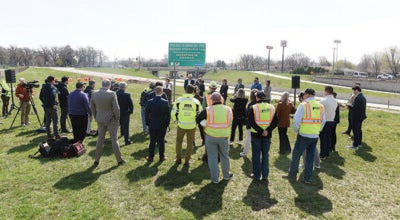Humane Society’s feral cat initiative under way
Published 6:00 pm Saturday, May 22, 2010
The Freeborn County Humane Society’s feral cat initiative has spayed or neutered a total of 48 cats since its first clinic in March. Of those cats, 34 were female. Thus, the births of 408 unwanted kittens have been prevented, said Dee Amberg, vice president of the Humane Society, who also serves as its volunteer feral cat initiative coordinator.
The Humane Society launched its feral cat initiative last fall. Its mission statement is: “The Humane Society of Freeborn County is committed to end the cycle of killing of feral cats by setting up a special fund to spay and neuter feral, stray and barn cats.”
Feral cats are cats that have either been born outside or a family pet that has strayed or has been dumped outside and over time has become fearful of humans. Feral cats are unadoptable and prefer to live outside instead of inside with humans.
Studies have shown feral cats are happy outside and they always live close to a source of food, water and shelter. They are as disease-free as a house cat and they can live just as long. Feral kittens born outdoors if caught at a very early age can be socialized and can make very good house pets.
Some believe feral cats should be caught and killed, moved to a different location, or taken to the pound. But feral cats that enter most animal shelters or pounds are killed. Catch and kill doesn’t work and is costly to taxpayers, Amberg said.
“It’s very cruel to kill a cat simply because it prefers to live outside your home rather than in it,” Amberg said.
Instead, the most effective way to deal with feral cats is trap-neuter-return, she said.
Feral cats are trapped in a live trap, taken to a veterinarian, spayed or neutered, vaccinated, then returned to the location where they were trapped.
The organization got a $500 grant to get the program going.
Because Dr. Susan Strunk of the Blooming Prairie Veterinary Clinic, along with her staff, donate their time to spay and neuter the animals, the cost is minimal. Amberg said 20 cats can be spayed or neutered, treated with penicillin, vaccinated and dewormed for $1,000. The Humane Society asks for a donation of $20 per cat to keep money in the fund.
“It’s a great deal,” Amberg said, adding that normally it costs between $125 and $200 to get a cat spayed or neutered.
But the Humane Society understands that most of these animals have been dumped and there are people who have already undertaken the cost of feeding them, she said. That’s the reason for the $20 fee.
The next clinic is Wednesday, May 26. Clinics will be held through November, or as long as it is warm enough to release the cats again soon after surgery. Amberg said it’s nice to have about 20 cats per clinic to make it worthwhile. For information on getting feral cats into an upcoming clinic call the Humane Society at 377-8501.
“We’d like to take care of all stray and barn cats in the southern Minnesota area,” Amberg said.
The Humane Society’s goal is also to be able to purchase more live traps for the program. The organization has been borrowing traps from Camp Companion in Rochester.
Any individual or business that would like to make donations to the feral cat intiative may send donations, earmarked feral cat intiative, to the Humane Society at P.O. Box 423, Albert Lea.
Amberg said she is willing to talk to groups about the feral cat initiative, and will drive to deliver traps, pick up cats that have been trapped and take them to the clinic.
“I personally don’t get a dime for this,” she said. “But I am so passionate about getting the cat population under control in Freeborn County. I’ve always loved cats, but we’re always at capacity here at the shelter.”





